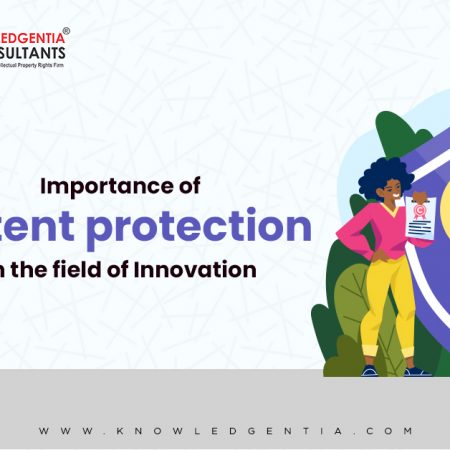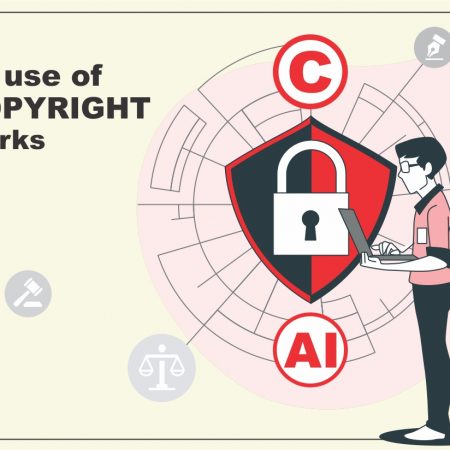PATENTABILITY OF BIOTECHNOLOGICAL INVENTIONS IN INDIA
INTRODUCTION
Biotechnological Inventions are those inventions which include techniques using living organisms or their parts to make new products or modify existing products or to improve as well as modify certain characteristics of plants or animals inorder to develop microorganisms for specified use. This technology is applied in wide ranging fields such as agriculture, food industry, pharmaceuticals to name a few. Humanity as benefitted majorly as a result of these inventions which have played an important role in improving nation’s health and environment. TRIPS – Trade-Related Aspects of Intellectual Property Rights, one of the most comprehensive agreement on Intellectual property provides three requirements of patentability in the case of biotechnological inventions as well. The product or process must be novel, involve an inventive step and be capable of industrial application. There has been wide ranging debate concerning whether the biotechnological inventions like genetically modified/engineered microorganism should be included as a patentable subject matter or not. Way back in 1980s, a famous case titled Diamond v. Chakrabarty, 447 U.S. 303 (1980), the United States Supreme Court opined that micro-organisms are patentable subject matter, and Chakrabarty was granted the patent for development of Pseudomonas putida that can metabolize the crude oil hydrocarbons . Knowledgentia Consultants has one of the best patent consultants in India who not only are experts in advising the matters concerning biotechnology inventions but also see to it that the matter reaches a logical conclusion with appropriate Intellectual property protection mechanism and safeguards in place.
PROVISIONS RELATING TO BIOTECHNOLOGICAL INVENTIONS IN INDIAN PATENTS ACT, 1970
Section 3 of the Patents Act, 1970 applies to inventions that are not patentable in India. Few provisions that are relevant for biotech inventions include Section 3 (b), (c), (d), (e), (h), (i) (j) of the Patents Act, 1970.
As per Section 3 (b) provides that genetically modified biological materials which do not cause any prejudice or harm to environment, human beings, plants or animals can be patented. Section 3 (c) further provides that biological materials obtained as a result of human intervention are patentable. The genes and DNA sequences are patentable in India only if they pass the test of patentability i.e. Novelty, Non-obviousness and Industrial Applicability. IPO Guidelines on Examination of Biotechnology Applications for Patents have further clarified that by virtue of Section 3 (h) of the Patents Act, 1970 clarifies conventional agricultural and horticultural methods performed in open field can be patented . Though these guidelines do not have force of law but significant precedent now exists in India in terms of which biotechnological inventions can be patented and which cannot be. At Knowledgentia, which is the best law firm in India, we offer Global IPR protection services and have also been filing patents in biotechnology inventions for our clients in many other countries apart from India.
The case titled Dimminaco AG v. Controller of Patents and Designs (AID NO.1 OF 2001) deserves special mention while discussing biotechnological inventions in India as this case changed the scenario of biotechnological patents in India. It was the first case where a vaccine containing a living material (i.e. virus) was allowed to be patented in India. Dimminaco filed the patent application no. 135/Cal/98 which claimed the process for preparation of infectious Bursitis Vaccine that contained a live virus which was subsequently rejected by the Assistant Controller of Patents &Designs. This decision was however challenged by Dimminaco in the Calcutta High Court where it allowed the patent application to be reconsidered for the grant of patent by the authorities.
ASSESSING NOVELTY, INVENTIVE STEP & INDUSTRIAL APPLICABILITY OF BIOTECHNOLOGICAL INVENTIONS
Assessing novelty in case of Biotechnological inventions can be a tricky thing as microorganisms are of natural origin and hence cannot be patented under section 3(c) of Patents Act, 1970, whereas a recombinant DNA though is also of natural origin, but has some artificially induced changes in its structure or genetic sequence that makes them superior over their natural counterparts and the changes are not commonly seen in natural environment as well and the invention is an explicit case of “directed evolution”. Biotechnological inventions have many applications in pharmaceutical and other sectors, especially in the formulation of drugs, vaccines, diagnostics. In agricultural sector, biotechnology is being applied extensively in manufacturing of environmentally friendly bio-fertilizers, plant breeding and disease resistant varieties. There are many benefits for humankind on one side but the menace of biopiracy and patenting of traditional knowledge has further complicated things in this sector. Considering India being among the largest biotech destinations in the world with 9 Biotech Parks, 4 Biotech Science Clusters, and 55 Bio-Incubators supported by the Department of Biotechnology and BIRAC; there is urgent requirement of laws to be framed in a holistic manner governing this sector.
ROLE OF NATIONAL BIODIVERSITY AUTHORITY (NBA)
NBA, established in 2003, is the national level authority that oversees the implementation of acts and rules relating to the usage of biological resources in India. According to The Biological Diversity Act, 2002, if a patent application discloses the use of any biological resource (including microorganism), it is required to take permission from the National Biodiversity Authority prior to the grant of the patent. NBA may also impose benefit sharing fee or royalty or both for the commercial exploitation any biological resource.
CONCLUSION
As their are many overlapping issues governing biotechnological inventions, there can be great ambiguity regarding protecting one’s intellectual property without any expert advice. At Knowledgentia Consultants, we have one of the best patent consultants in India, who offer advice regarding filing and procedure with respect to patent applications in the field of biotechnology. We are your one-stop solution for all kinds of legal, compliance and supplemental matters concerning patents. In case of any query regarding this matter you may email us at info@knowledgentia.com or visit our website –https://knowledgentia.com/.
PUBLISHED BY MS. HARINDER NARVAN, MS. APARNA JAIN, MS. AASHRIKA AHUJA AND MR. ABHISHEK PARMAR AS ON 03.03.2022








